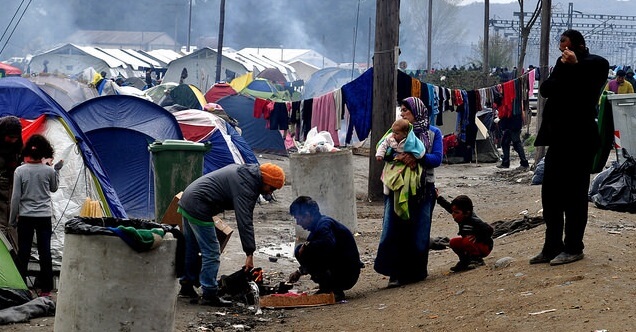The NGO HIAS recently published a policy brief entitled ‘Locked Up Without Rights’ concerning the legal framework regulating the detention of asylum seekers in Greece and the use of automatic detention of single males based on their nationality.
The policy of automatic detention identifies single men arriving from “low profile” countries to be detained in pre-removal detention centres in the Moria camp on the Greek island of Lesvos. It is thus used to provide for the speedy return of third country nationals who are identified as having arrived from “safe” countries. HIAS notes that the procedure lacks sufficient legal reasoning and fails to consider the potential vulnerability of those seeking international protection. Moreover, detained individuals are not informed of the reasons for their detention and do not have access to legal assistance.
HIAS concludes that the “low profile detention scheme” constitutes arbitrary detention under Article 9 ICCPR. The Greek government has been urged to discontinue the use of this detention scheme in order to protect against arbitrary detention in degrading conditions, the lack of access to legal remedies and judicial review, and restricted access to international protection.
The detention of asylum seekers is further facilitated with the entry into force of Greece’s new Law on International Protection on 1 January 2020, which has, inter alia, prolonged the maximum length of detention, and removed procedural safeguards. Just this week Greek authorities applied the new law and detained 55 people who arrived to the Greek island of Kos over the weekend in two boats. According to Der Spiegel the group that is of Syrian, Iraqi, Somali and Palestinian origin is to be detained until decisions have been reached on their asylum applications.
Almost 60.000 asylum seekers arrived to Greece by sea in 2019 and more than 40.000 remain on the Greek islands under inhumane conditions. A recent report from
Refugee Support Aegean (RSA) entitled ‘Moria Nightmare’ documents that “19.200 registered individuals reside in exceptionally precarious conditions in and around the hotspot that has an official capacity of 2.840 people.”
Following other measures of sealing off access to Greece the Greek government announced on January 30 the instalment of a floating barrier to prevent migrants from arriving to its island shores.
For further information:
- ECRE, Serbia Shows European Solidarity in Greece – France Follows up on Mixed Promises, January 2019
- ECRE, Greece: Government Hit with Interim Measures and Introducing New List of Safe Country of Origin, January 2020
- AIDA, Country Report Greece, 2019 Update
- ECRE, France to Assist Greece Where Situation Continues to Worsen, December 2019
- ECRE, Greece: Six People Found Dead in Evros Region while Authorities Prop Up Border Security, December 2017
- ECRE, Greece: Return to Plans for Detention Centres on the Islands, November 2019
- ECRE, Weekly Editorial: Containment instead of Protection – EU Politics in Greece and the Balkans, November 2019
Photo: (CC) ChadBriggs, March 2016

